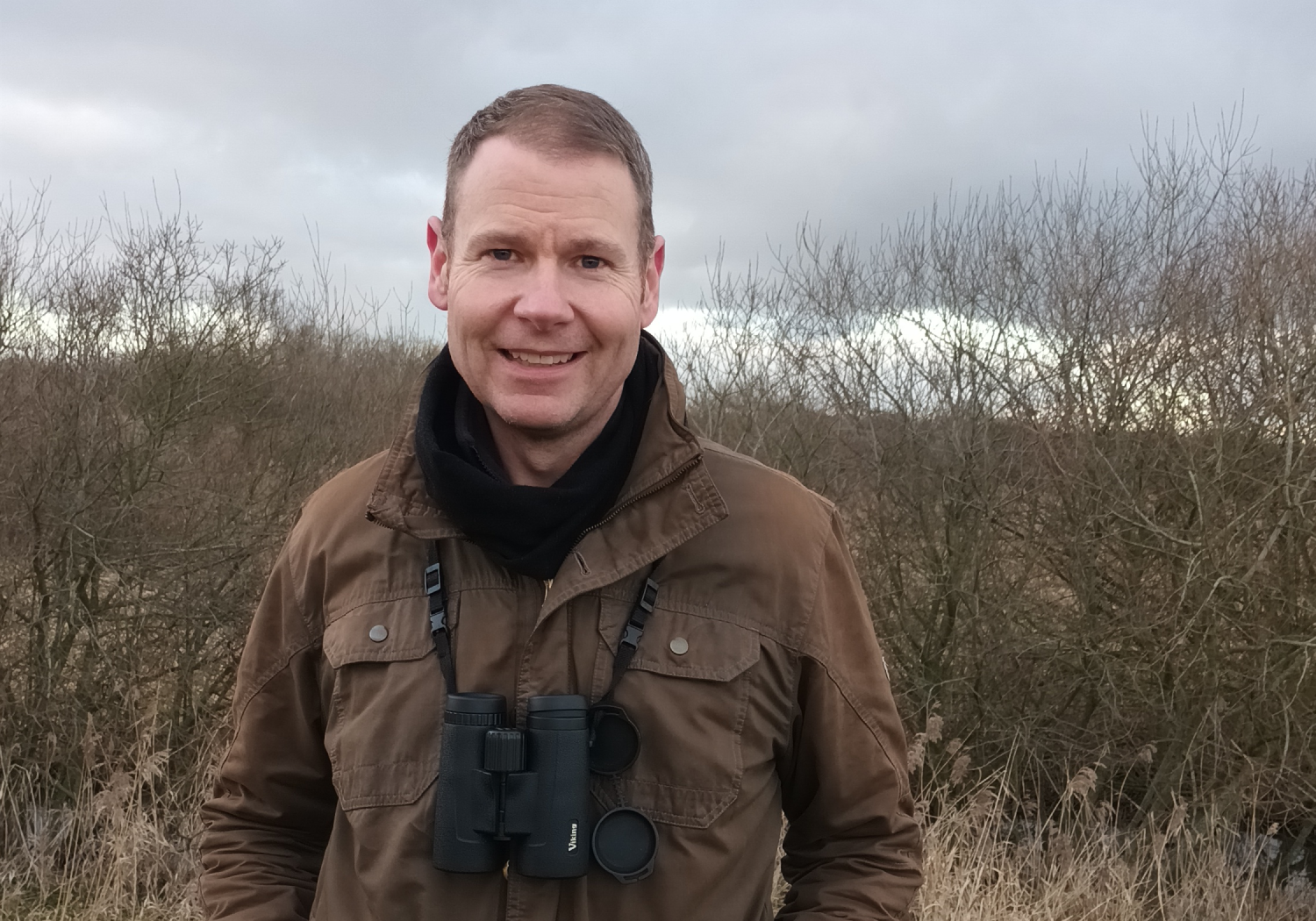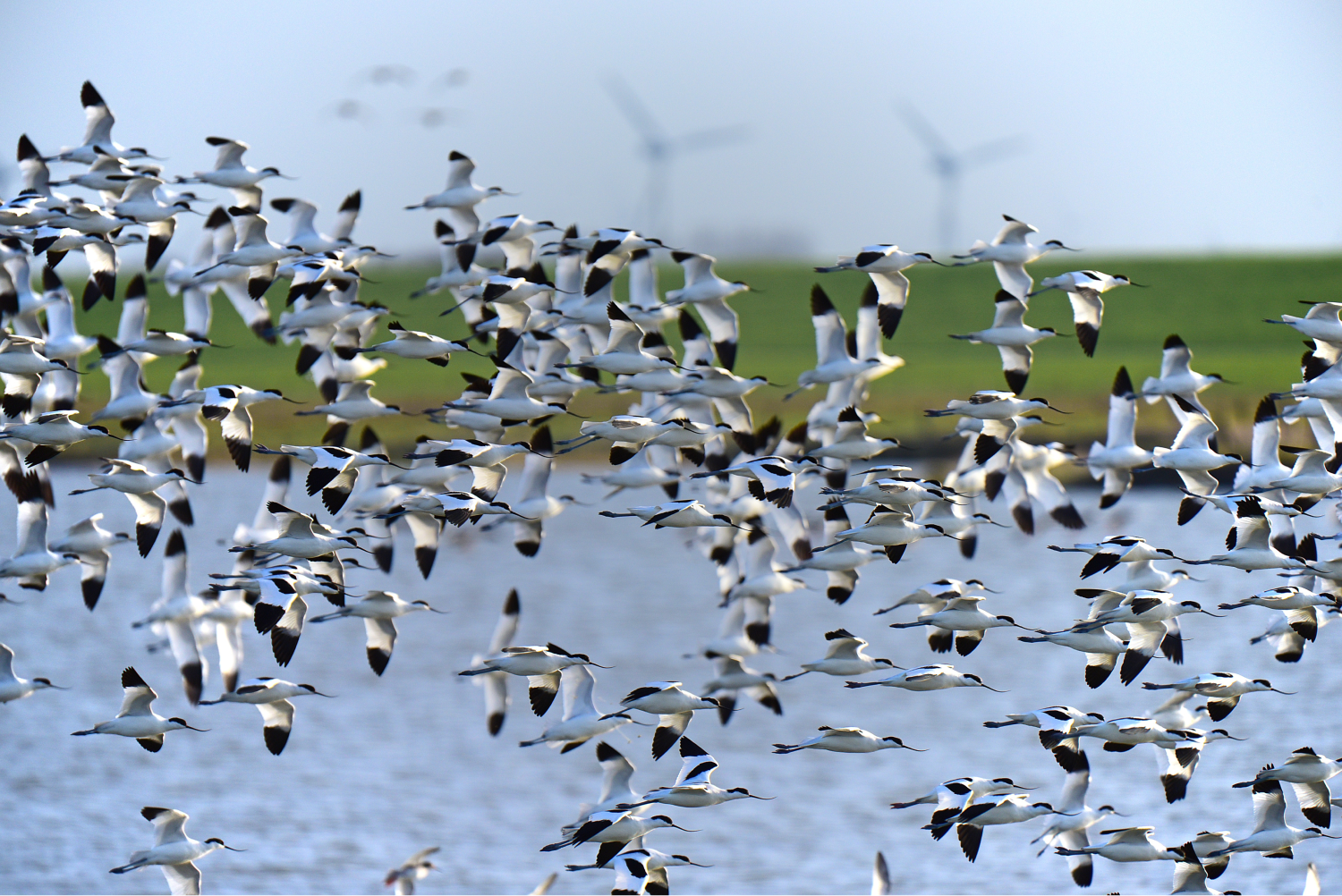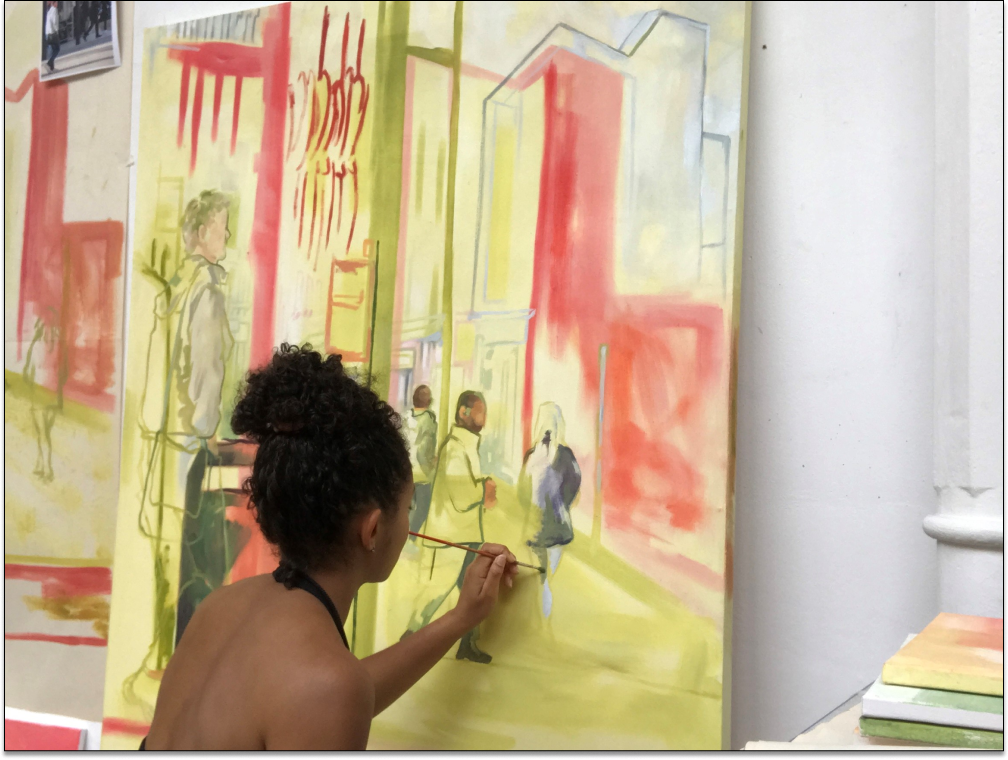'Two years to sit and brood

Poet Matt Howard talks about his ‘remarkable opportunity’ to develop his craft and create new work.
“I was so excited I couldn’t sleep,” laughs Matt, looking back to his appointment as the latest Douglas Caster Fellow in Poetry.
Matt's love of poetry, which is inspired by birds, landscapes and the natural world, was kindled by two inspirational teachers more than 25 years ago: “I wasn’t from a bookish family, so I do wonder where the impulse came from.”
It came slowly. “For a long time I was afraid to put pen to paper. I’d write passages in my head, but never share them with anyone. In my first book there are lines I’ve had in my head since I was at school. I almost had to give myself permission to write them down.”
But rather than taking his teachers’ advice by going to university, Matt began working in insurance. “Norwich has a vibrant literary culture and I began to attend poetry readings. Finally I started to commit my own thoughts to paper and began to get poems published in magazines.”
Much of his writing relates to nature and conservation: “Norfolk is central to what I want to do in poems. When I was a kid, you would go to the wood, run wild and just be out in nature.”
Redundancy afforded Matt the opportunity for a career change, as he channelled this passion into fundraising for the Royal Society for the Protection of Birds: “I wanted to work in something that reflected my values.” He soon established the charity’s Nature and Place Poetry Competition, which attracts thousands of entries every year, giving both budding and published poets the opportunity to bring their work to a wider audience.
“The RSPB supported me to join the steering group of New Network for Nature, a group of writers and conservationists who hold an annual symposium to bring together creatives of all disciplines and foster new ideas. By itself, it’s not going to save the curlew but it’s part of the puzzle, helping people think in different ways.”
His poetry flourished and in 2018 his first full collection, Gall, was published to critical acclaim. It won the East Anglian Book Award, was shortlisted for the Seamus Heaney Prize, and was chosen as the Best First Collection in the inaugural Laurel Prize, established by poet laureate Simon Armitage.
“That was amazing,” he says. “Along with writers such as Ted Hughes and Philip Larkin, Simon has always been someone who inspired me.” Matt’s appointment as Douglas Caster Fellow has seen them become colleagues in the School of English, where Armitage is Professor of Poetry.

Matt finds inspiration from the landscapes and bird life of his native Norfolk.
Matt finds inspiration from the landscapes and bird life of his native Norfolk.
Funded by Douglas Caster (Electronic and Electrical Engineering 1975) our poetry fellowships give emerging writers the time to devote themselves to their work, while inspiring students to write. The fellowships have attracted a string of brilliant writers to Leeds, including Helen Mort, Vahni Capildeo, Malika Booker and Zaffar Kunial.
“The fellowship is an astonishing privilege,” says Matt. “Before this, my poetry was at the margins of my busy working life. Being presented with two years to sit and brood is almost mind blowing. It gives me time to be out in nature, to read, to use the resources of the University. I can’t thank Douglas enough.”
And he is sharing his passion with students: “I just try to imagine what I’d have most wanted someone to say to me when I was younger. If students send me poems, we chat about them over a coffee, look at the green shoots in their work, and discuss where might it go next.”
He’s brought his love of nature to the role, leading students on a dawn chorus walk: “It was funny. We were setting out just before sunrise, and there were other students just getting home from a night out.”
At the same time, he has been creating material for a second collection to be published next year. He’s also working on a book which draws on his love of wildlife. “I want to look at how birds are portrayed in other cultures. A poet here might write about the cuckoo, but these are birds which migrate through Europe to the Congo Basin. How do cuckoos feature in works from countries along that route?”
Matt stresses his gratitude for the funding which has made this possible. “Having two years to develop my craft is seismic.”
The Pond
by Matt Howard
Here’s the start of a new sense of things-
just into March, the light and air fuller
and that mallard, so still there at the edge,
her heaviness pending, neck stretched,
not at rest; she can only be considering
her own streaked reflection, herself, held there
in the shade, and in the clay-backed mirror
of water, with no call for contact or confrontation,
just caught in a glance of the ways things are;
meeting a fresh slant of our mirrored selves;
now surely this is how it all begins, continues,
as this one, then another and then another.
Legacy enables artistic expression

A series of paintings exploring a journey from childhood in the Caribbean through to adulthood in Britain’s Windrush generation, is among projects supported this year by the Berkofsky Arts Award. Each year the Berkofsky Arts Award celebrates and supports creative excellence in the Faculty of Arts, Humanities and Cultures.
Students are awarded grants of £2,000 to explore their creative passions. The awards were made possible by a bequest from the late Hugh Berkofsky, whose legacy has so far supported the careers of more than 40 Leeds students in the visual and performing arts.
Hettie Inniss of the School of Design created a series of paintings exploring her father’s life: “He came over to Britain when he was seven,” she says. “So the paintings begin with a childlike perspective, looking at colour and form and how this informs the narrative between Barbados and England, touching light and dark within that experience.”
Isaac Morton of the School of Philosophy, Religion and History of Science, used his award to create a short film, 'Graduation', following two friends as they begin their careers. It examines how their very different backgrounds play a key role in determining their future.
Watch Isaac's film below.
When you support the University of Leeds, you play a vital role in supporting our University’s outstanding research and education.
If you would like to give to Leeds, please visit our giving page.